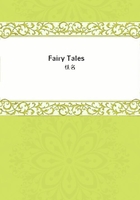
第184章
IN a charity school, among the children, sat a little Jewish girl.
She was a good, intelligent child, and very quick at her lessons; but the Scripture-lesson class she was not allowed to join, for this was a Christian school. During the hour of this lesson, the Jewish girl was allowed to learn her geography, or to work her sum for the next day; and when her geography lesson was perfect, the book remained open before her, but she read not another word, for she sat silently listening to the words of the Christian teacher. He soon became aware that the little one was paying more attention to what he said than most of the other children. "Read your book, Sarah," he said to her gently.
But again and again he saw her dark, beaming eyes fixed upon him; and once, when he asked her a question, she could answer him even better than the other children. She had not only heard, but understood his words, and pondered them in her heart. Her father, a poor but honest man, had placed his daughter at the school on the conditions that she should not be instructed in the Christian faith. But it might have caused confusion, or raised discontent in the minds of the other children if she had been sent out of the room, so she remained; and now it was evident this could not go on. The teacher went to her father, and advised him to remove his daughter from the school, or to allow her to become a Christian. "I cannot any longer be an idle spectator of those beaming eyes, which express such a deep and earnest longing for the words of the gospel," said he.
Then the father burst into tears. "I know very little of the law of my fathers," said he; "but Sarah's mother was firm in her belief as a daughter of Israel, and I vowed to her on her deathbed that our child should never be baptized. I must keep my vow: it is to me even as a covenant with God Himself." And so the little Jewish girl left the Christian school.
Years rolled by. In one of the smallest provincial towns, in a humble household, lived a poor maiden of the Jewish faith, as a servant. Her hair was black as ebony, her eye dark as night, yet full of light and brilliancy so peculiar to the daughters of the east.
It was Sarah. The expression in the face of the grown-up maiden was still the same as when, a child, she sat on the schoolroom form listening with thoughtful eyes to the words of the Christian teacher. Every Sunday there sounded forth from a church close by the tones of an organ and the singing of the congregation. The Jewish girl heard them in the house where, industrious and faithful in all things, she performed her household duties. "Thou shalt keep the Sabbath holy," said the voice of the law in her heart; but her Sabbath was a working day among the Christians, which was a great trouble to her.
And then as the thought arose in her mind, "Does God reckon by days and hours?" her conscience felt satisfied on this question, and she found it a comfort to her, that on the Christian Sabbath she could have an hour for her own prayers undisturbed. The music and singing of the congregation sounded in her ears while at work in her kitchen, till the place itself became sacred to her. Then she would read in the
Old Testament, that treasure and comfort to her people, and it was indeed the only Scriptures she could read. Faithfully in her inmost
thoughts had she kept the words of her father to her teacher when she left the school, and the vow he had made to her dying mother that she should never receive Christian baptism. The New Testament must remain to her a sealed book, and yet she knew a great deal of its teaching, and the sound of the gospel truths still lingered among the recollections of her childhood.
One evening she was sitting in a corner of the dining-room, while her master read aloud. It was not the gospel he read, but an old story-book; therefore she might stay and listen to him. The story related that a Hungarian knight, who had been taken prisoner by a
Turkish pasha, was most cruelly treated by him. He caused him to be yoked with his oxen to the plough, and driven with blows from the whip till the blood flowed, and he almost sunk with exhaustion and pain.
The faithful wife of the knight at home gave up all her jewels, mortgaged her castle and land, and his friends raised large sums to make up the ransom demanded for his release, which was most enormously high. It was collected at last, and the knight released from slavery and misery. Sick and exhausted, he reached home.
Ere long came another summons to a struggle with the foes of